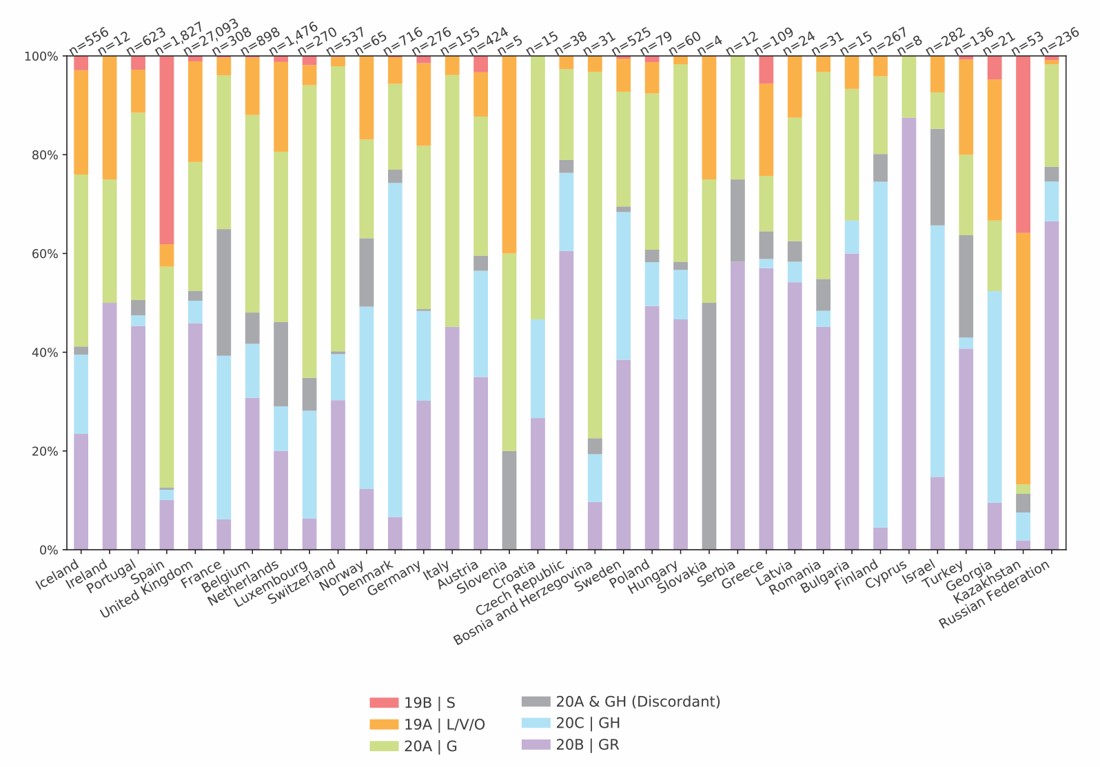- The Laboratory
- Organization
- Departments
- Jobs
- Analysis book
- Contact
- News
- Publications
- Download



As part of the fight against COVID-19, the LNS’s Microbiology Department has contributed to a study on the “Geographical and temporal distribution of SARS-CoV-2 clades in the WHO European Region”. The related article has been published in Eurosurveillance, an international journal specialised in infectious disease surveillance, epidemiology, prevention and control.
This study is the result of an extensive Europe-wide research collaboration effort, based on data submitted to GISAID (the Global Initiative on Sharing Avian Influenza Data). Originally founded for the rapid exchange of data on all influenza viruses, GISAID was also one of the first organisations to collect sequence data for SARS-CoV-2 – the virus that causes the disease COVID-19 – and make it available to its users as quickly as possible. On the LNS side, our colleagues Guillaume Fournier of the Virology and Serology Unit, and Joël Mossong, Catherine Ragimbeau and Anke Wienecke-Baldacchino of the Epidemiology and Microbial Genomics Unit were involved in the project. Over a period running from March to June 2020, they provided GISAID with SARS-CoV-2 full-genome sequencing data for Luxembourg.
Sequencing and data dissemination
The aim of the study was to show the distribution of SARS-CoV-2 genetic clades over time and between countries, and outlines potential genomic surveillance objectives. Three available genomic nomenclature systems for SARS-CoV-2 were applied to all sequence data from the WHO European Region available during the COVID-19 pandemic, up until 10 July 2020. We managed to quickly set up a sequencing protocol for the virus, and were able to contribute 271 sequences thanks to a systematic and rapid SARS-CoV-2 sequencing pipeline. The processing time achieved was of only 23 days on average, compared to 32 days in other European countries. This enabled us to make the SARS-CoV-2 genomes present in Luxembourg available to the GISAID-EpiCoV archive very quickly, which helped approach real-time monitoring. The article underlines the importance of real-time sequencing and data dissemination in a pandemic situation, and provides a comparison of the nomenclatures, with the aim to lay a foundation for future European genomic surveillance of SARS-CoV-2.
Multifaceted research in Luxembourg
The project also goes to show the leading role that the LNS is playing in the fight against COVID-19 in and around Luxembourg. In this instance, we provided an international research projects with our local knowledge. What’s more, we put the international expertise of our team together to serve the country and its people. Together with the FNR (Luxembourg National Research Fund), we recently carried out a highly interesting study on the development of social contacts in Luxembourg during and after the lockdown. This partly sociological topic also shows to what extent relevant multifaceted research missions define the LNS’s role as a laboratory.
Link to the article: https://www.eurosurveillance.org/content/10.2807/1560-7917.ES.2020.25.32.2001410